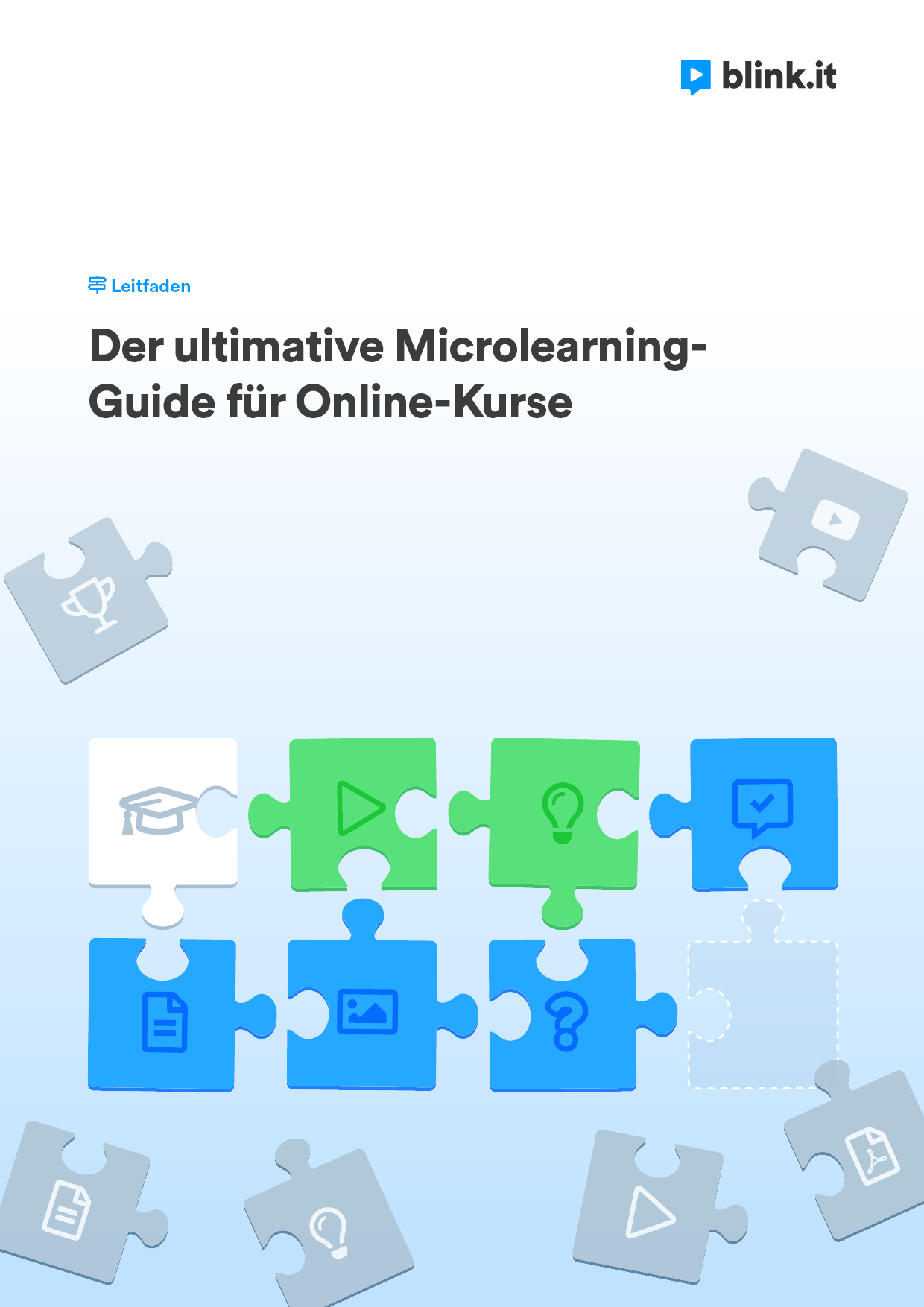Learning must become more flexible and self-determined! To achieve this, many continuing education professionals are increasingly relying on micro-formats. Learn in this article why micro-credentials are not only beneficial at universities but also for educational providers and larger companies.
Definition: What does "Micro-Credential" mean?
In the world of adult education, things are becoming increasingly fragmented: Microlearning is the keyword that has been of long-standing interest in this blog. We first read the term "Micro-Credential" in the blink.it editorial team in the Trend Monitor 2022: In the study, 77% of respondents agreed that micro-credentials generally enhance the attractiveness of informal learning. But what lies behind this term?
A micro-credential (also referred to as microcredential, microdegree, or nanodegree) is both a designation for a certificate of participation in a compact education course and a designation for a compact education course itself.
Wikipedia
A micro-credential is therefore a mini-certificate for a learning unit or a small course. We now summarize what this concept can mean for educational providers and corporate trainers in a concise profile.

With micro-credentials, learning is standardized and at the same time participant-driven.
Examined: Profile of Micro-Credentials
What is a Micro-Credential?
In short, a micro-credential is a certificate for a specific skill. The contents and the respective course are kept as concrete and brief as possible.
Importantly, a micro-credential should be generally valid, and the contents should thus be easily understandable and comparable.
Why are Micro-Credentials useful for learning?
In principle, every certificate has two parallel purposes:
Incentive and reward for the learner, for example, through gamification
External, formal confirmation of a knowledge level or a skill
Certificates for segmented (“micro”) learning units are additionally particularly accessible and practice-oriented. They aim to increase the efficiency of education and make learning generally easier and more self-directed.
Where can I use Micro-Credentials?
Originally, micro-credentials were intended for use at universities: degrees should become internationally comparable and more flexible. Perhaps you remember the political debate surrounding the Bologna Process at the beginning of the millennium. Across Europe, university degrees were to be made comparable. Mobility, international competitiveness, and employability were the main goals of the international transition to bachelor's/master's degrees.
More and more educational providers and larger companies have recognized the value of micro-credentials in recent years. The principle that makes university degrees comparable within the EU can also work in companies with multiple branches!
What concepts are related to Micro-Credentials?
The world of microlearning feels like it is being expanded daily with new learning methods. They all rely on similar concepts that are related:
Lifelong learning
Informal learning
Self-directed learning
All these learning concepts are based on one idea: What has been learned should be anchored long-term and successfully applied in practice.
For which topics are Micro-Credentials suitable?
Mini-certificates are particularly suitable for hard skills, as these are especially comparable. For example, language skills, knowledge of an office program, or similar.
For which participants are Micro-Credentials suitable?
In principle, micro-credentials are, of course, suitable for anyone who wants to learn and be certified in a hard skill. However, certain target groups are particularly well suited, as indicated by the SVEB (Swiss Association for Continuing Education) in the context of a project:
Due to the accessibility of the offerings, professionals believe that especially those with low qualifications, individuals without a vocational qualification, and disadvantaged population groups such as migrants and refugees could be potential target groups for micro-credentials.
SVEB on the project "Micro-Credentials"
Practical tips for companies and educational providers
As an institution or educational provider, you could offer courses with micro-credentials that allow for very specific certification. The previously mentioned target groups, especially those with low educational standards, are particularly interesting here. But also thematically, some courses are especially well suited for micro-credentials, such as language courses.
For companies with multiple branches, the micro-credential concept is especially exciting: it unites employees from different locations, possibly even internationally, using uniform certificates – that is, micro-credentials. A specific topic, one certificate, valid everywhere and generally.
What do you think, are micro-credentials a way to advance your further education? Feel free to write us a message!







